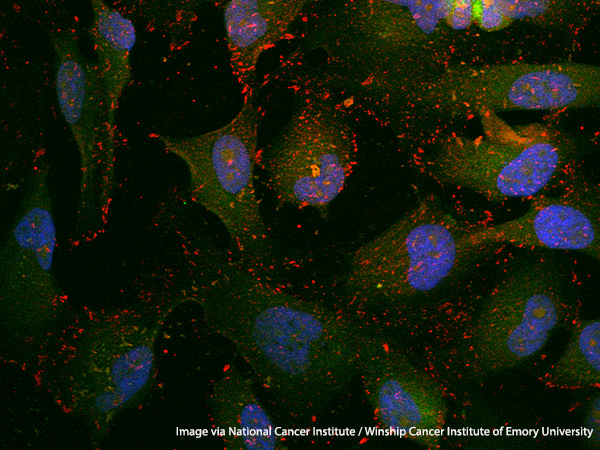Tumor Sequencing to Expand Use of an Immune Checkpoint Inhibitor
The FDA approved the use of a companion diagnostic to identify patients with tumors that have large numbers of genetic mutations.

The U.S. Food and Drug Administration (FDA) granted accelerated approval to expand the use of pembrolizumab (Keytruda) in patients who have tumor mutational burden-high (TMB-H) unresectable or metastatic solid tumors, regardless of the type of cancer they have. At the same time, the FDA approved the use of a next-generation sequencing test called FoundationOne CDx to identify the pool of adult and pediatric patients who might benefit from this expanded use of pembrolizumab based on the genetic sequencing of their tumors.
The approval of the diagnostic test and the use of pembrolizumab is indicated for patients with advanced cancers whose disease has progressed despite prior therapy and who have no other standard treatment options.
FoundationOne CDx is a comprehensive genetic profiling assay that can detect various alterations across over 300 genes as well as identify genetic signatures such as TMB-H in tumor tissue samples. Pembrolizumab is an immunotherapeutic drug that works by dismantling the brakes on certain immune cells called T cells, so they can recognize cancer cells and attack them. Cancer cells that are positive for the TMB-H biomarker tend to produce large numbers of abnormal proteins on their surface, which may draw the attention of T cells in ways that heighten the immune response. This suggests that TMB_Hstatus may potentially be one way to help predict which patients will respond to treatment with immunotherapy.
The FDA based this new approval on data gathered from a multicenter, non-randomized, open-label clinical trial. Out of 790 patients tested, 102 were positive for TMB-H status. Within that pool of study participants, the overall response rate was nearly 30 percent and in half of those that responded, the response duration was at least 24 months.
National Cancer Institute (NCI) considers the use of TMB status to be another step in the advancement of genomic medicine and the quest for treatment approaches that are based on the genetic signatures of tumors regardless of tissue type.
The FDA granted accelerated approval for the expanded use of pembrolizumab in adults and children with TMB-H solid tumors and the use of the companion diagnostic to identify them on June 16, 2020. Accelerated approval means continued approval may be contingent upon a confirmatory trial.
